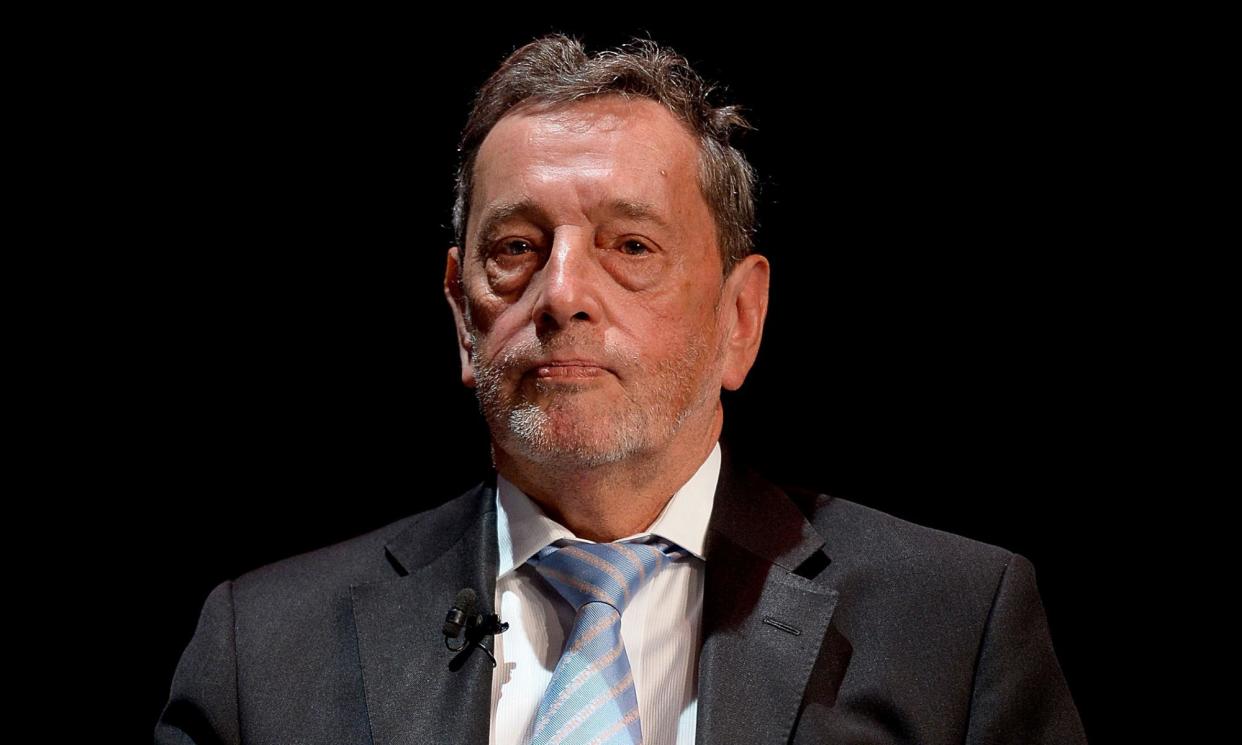David Blunkett says devising 99-year prison sentences is his ‘biggest regret’

David Blunkett, the former Labour home secretary, has said devising legislation that has left people languishing in prison for minor offences is the “biggest regret” of his eight years at the heart of government.
The Labour peer, a titan of the Brown-Blair era, said that imprisonment for public protection (IPP) – known as the 99-year sentence – is the greatest blot in his copybook.
IPPs, created in 2003 under Tony Blair’s premiership, granted indeterminate sentences and suggested a minimum time a prisoner should serve. Offenders can be on licence for up to 99 years upon release, meaning they can be recalled at any time – often for behaviour that is not criminal.
In 2012, the European convention on human rights declared the use of IPPs “arbitrary and therefore unlawful” and the sentence was abolished, but not retrospectively for prisoners still serving their sentence. Nearly 3,000 prisoners in England and Wales are still serving IPP sentences. It is believed that 90 IPP prisoners have taken their own life when serving their sentence or on licence.
“What has happened with this sentence is the biggest regret I have in terms of the outcome of all the many things that I was involved in the eight years I was in government,” Blunkett told the Guardian.
IPPs were devised for people who had committed serious crimes short of murder that did not merit mandatory life sentences. It was expected they would be rarely handed out, with about 900 people serving them at any one time, and that courses and therapy would be available to allow IPP prisoners to progress through their sentence.
But judges handed down the sentence more frequently than expected, often to repeat offenders of petty crimes. In total, 8,711 IPP sentences were given and 6,000 people were serving the sentence when it was abolished. A third of IPP prisoners had tariffs of two years or fewer – the minimum amount of time that could be served for the crime. Because of the shortage of courses, few prisoners were able to progress through the system.
Forty-six percent of IPP prisoners have been held for 10 years or more over their tariff, with some being frequently recalled for trivial breaches of licence conditions rather than committing a crime.
Today, more than half of the prisoners serving an IPP sentence have been recalled, many for missing appointments with probation officers, losing their place at approved premises or disclosing poor mental health.
The former supreme court justice, Lord Brown, called IPPs “the greatest single stain on our criminal justice system” in 2020. Last year, the prisons and probation ombudsman, Adrian Usher, said “a prisoner’s IPP status should be considered as a potential risk factor for suicide and self-harm” and the UN torture expert, Alice Jill Edwards, called on the UK government to urgently review all sentences imposed on prisoners held under IPP. “I’m particularly concerned about the higher rates of self-harm, suicidal ideation, suicide attempts and actual suicide among the IPP prisoner population,” she said.
Last week, the Guardian reported on Tommy Nicol, who told prison authorities that his sentence was the “psychological torture of a man doing 99 years”. Nicol, who stole a car, was refused parole twice before killing himself in 2015.
In 2020, his family received undisclosed damages from the Ministry of Justice after beginning a civil claim in the high court. They argued that the absence of a maximum term led directly to Nicol’s death and that the administration of the sentence constituted a breach of his right to life under the Human Rights Act 1998. This week, the Guardian will tell the story of Martin Myers who has served 18 years for trying to steal a cigarette.
Although Blunkett told the House of Lords in 2021 he got IPPs “wrong”, he insisted it was well-intentioned. He said that the sentence, introduced as an example of the Blair government’s promise of being “tough on crime and tough on the causes of crime”, was poorly drafted and misinterpreted by judges.
He said this week: “Whilst the principle behind IPP was correct, the crafting of the legislation and its implementation has resulted in deeply damaging outcomes. The failure of myself, and of parliament, to recognise that this additional sentence to the menu available to the judiciary should have been much more tightly drawn to preclude its application for relatively minor, if repeated, offences.”
He added: “It’s difficult to declare anything positive from something that has gone so disastrously wrong, but for politicians, criminologists, psychologists and forensic psychiatrists, the lessons are pretty clear. It is necessary to anticipate the worst scenarios, and therefore what might go wrong rather than presuming, as was the case back in 2003, that everyone playing their part in the criminal justice system would act rationally, that adequate resources would be made available, and that just a few hundred rather than several thousand people would be caught up in the sentence. Learning from what went wrong, starting with the well-meaning conception of the legislation, all the way through to the independent judiciary delivering the sentence, should teach us how important it is to learn from the past.”
Blunkett was a signatory to a recommendation by the justice select committee in 2022 that IPP prisoners should be resentenced. The recommendation was not backed by the government or Labour, although other amendments – including the easing of licence conditions for IPP prisoners – have been supported.
“In an ideal world, resentencing would deal with the major challenges of finding an immediate pathway forward for the 1200 IPP prisoners who have not yet been released,” Blunkett said.


